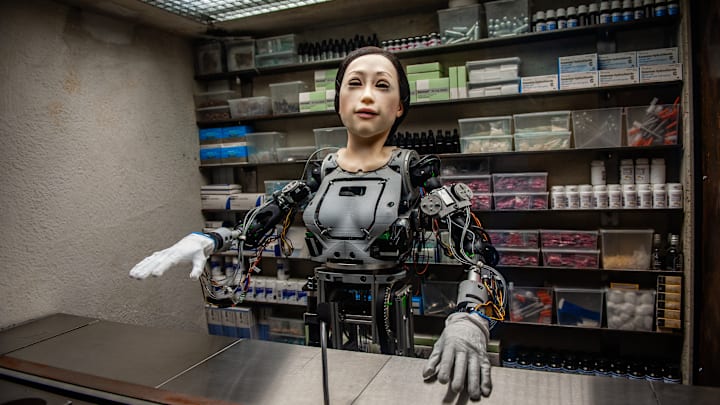Artificial Intelligence in Healthcare: Revolutionizing Diagnosis and Treatment

Artificial intelligence (AI) is at the forefront of a healthcare revolution, transforming how medical professionals diagnose, treat, and manage diseases. By leveraging vast amounts of data and advanced algorithms, AI systems are enhancing diagnostic accuracy, personalizing treatment plans, and improving patient outcomes. This technological advancement is paving the way for a more efficient and effective healthcare system.
One of the most significant contributions of AI in healthcare is its ability to analyze large datasets quickly and accurately. Medical records, imaging scans, genetic information, and even real-time data from wearable devices are processed by AI algorithms to identify patterns and anomalies that may be imperceptible to human clinicians. For instance, AI-driven image recognition software can analyze radiology images, such as X-rays, MRIs, and CT scans, to detect conditions like tumors, fractures, or infections with remarkable precision. This not only speeds up the diagnostic process but also reduces the likelihood of human error.
AI's role in personalized medicine is another game-changer. By considering an individual's genetic profile, lifestyle, and environmental factors, AI systems can recommend tailored treatment plans that are more likely to be effective. This approach is particularly beneficial in oncology, where AI can analyze genetic mutations in cancer cells to suggest targeted therapies that improve patient outcomes. Additionally, AI can predict how a patient might respond to certain treatments, allowing for adjustments to be made proactively to avoid adverse effects and enhance therapeutic efficacy.
Predictive analytics powered by AI is revolutionizing disease management and prevention. By analyzing historical and real-time data, AI can identify patients at risk of developing chronic conditions such as diabetes, heart disease, or stroke. Early intervention strategies can then be implemented, potentially preventing the onset of these diseases or mitigating their impact. For example, AI algorithms can monitor glucose levels in diabetic patients and predict episodes of hypoglycemia, enabling timely interventions that can prevent serious complications.
Moreover, AI is streamlining administrative tasks and improving healthcare efficiency. Natural language processing (NLP) algorithms can extract valuable information from clinical notes, ensuring that patient records are up-to-date and accurate. This reduces the administrative burden on healthcare providers, allowing them to focus more on patient care. AI-powered chatbots and virtual assistants are also enhancing patient engagement by providing instant responses to queries, scheduling appointments, and offering medical advice based on the latest guidelines.
Despite the numerous benefits, the integration of AI in healthcare comes with challenges. Ethical considerations regarding data privacy, algorithmic bias, and the transparency of AI decision-making processes are critical issues that need to be addressed. Ensuring that AI systems are trained on diverse datasets can mitigate biases and improve their reliability across different populations. Additionally, regulatory frameworks must evolve to keep pace with the rapid advancements in AI technology, ensuring that these innovations are safe and effective for patient care.
In conclusion, AI is revolutionizing healthcare by enhancing diagnostic accuracy, personalizing treatments, and improving disease management. The ability of AI to process vast amounts of data quickly and accurately is transforming the way medical professionals approach patient care. As AI technology continues to advance, its potential to improve healthcare outcomes and efficiency is immense. However, addressing ethical and regulatory challenges is essential to ensure that the benefits of AI in healthcare are realized equitably and responsibly.